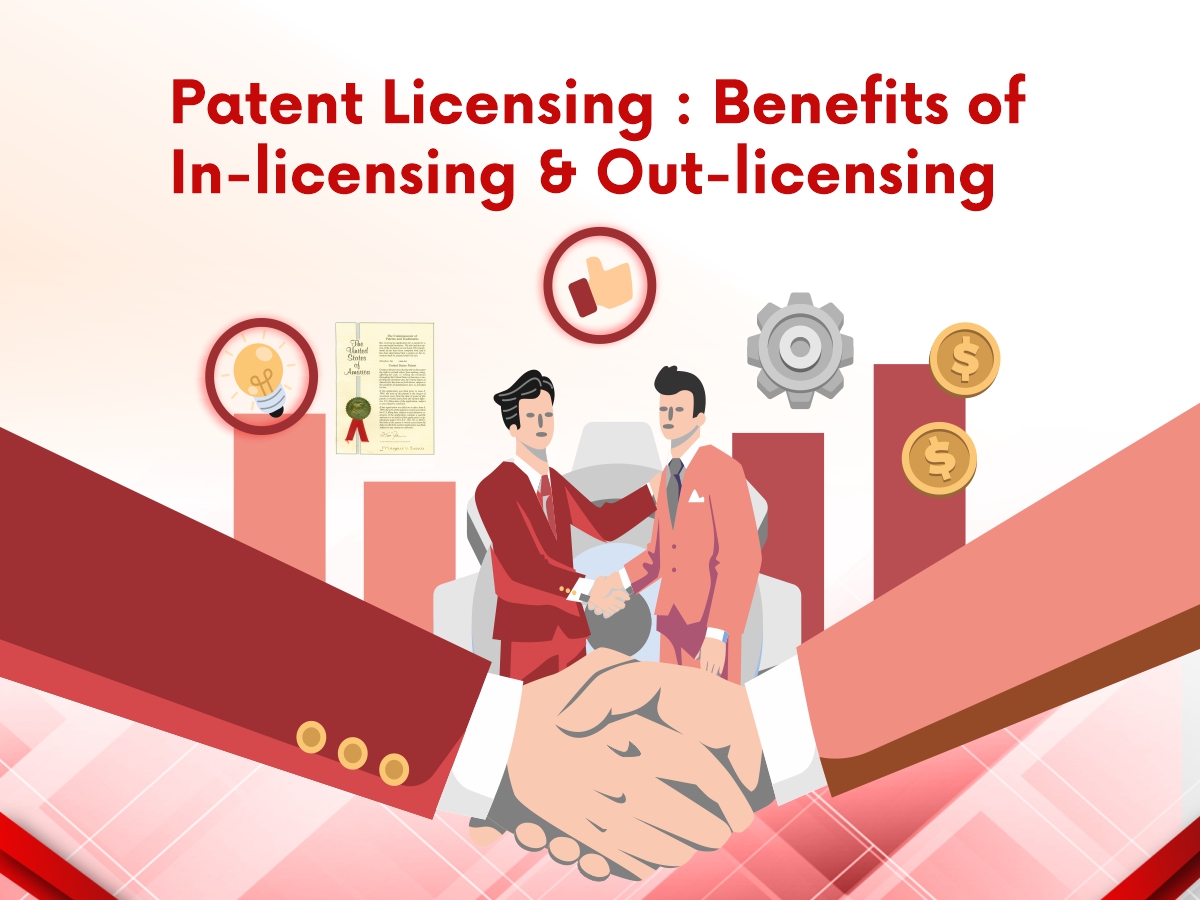Subscribe our newsletter
Please Subscribe our news letter and get update.

It is not easy to bring a new product or invention to market. It’s a time-consuming procedure that starts from the day you experienced your eureka moment. There are many obstacles between filing a patent to protect your invention and progressing from the planning stage to manufacturing.
Even getting a patent is a big challenge in itself. The procedure is lengthy and expensive, and after your patent is issued, the next step is to commercialize it so that you may profit from it. In this article, we will be giving you an overview of patent licensing, approaches to patent Licensing and why to license your patent. We will take a deep dive into the topic and explore the benefits Of ln-Licensing & Out-Licensing. By the time you finish reading the last sentence of this article, you will have a good understanding of the following concepts:
When a patent is licensed, the patent owner (or the licensor) and the person or firm who wishes to use and benefit from the patent (the licensee), enter into an agreement.
It allows the licensee to manufacture or sell the patent’s product, design, or technology. For the life of the licensing period, the patent generates revenue and royalties for both the licensee and the licensor.
Two basic approaches to patent licensing:
In this approach, the patent owner (and possible licensor) persuade the potential licensee to license the patent. In this case, the potential licensee has not infringed on the patent in question, thus they can simply decline to license it. So, it is up to the patent owner to convince the potential licensee that the product, design, or technology covered by their patent will benefit the potential licensee in some way, usually by helping them to make money.
In this “serious” approach, it has already been established that the potential licensee has infringed on the patent in question and is using the patent’s technology in some way. The primary message is that the potential licensee must license the patent or face a lawsuit.
When you sell a patent to a large corporation, you may receive a large sum of money for your innovation, but you will lose all future rights to it. As a result, patent licensing may be a viable alternative to selling a patent.
Besides the obvious benefit of earning money, there are a few more advantages of licensing your invention Some of them are listed below.
Licensing is the most convenient and straightforward way to turn your product concept into reality without having to invest any money and while securing a lifetime of royalties.
Note: The lifetime refers to the lifetime of the patent, and not the person.
As the product is licensed to an individual or a firm, the inventor incurs no production or distribution costs. You genuinely become risk-free and receive royalties as a result.
A significant investment is required for the product’s launch. It takes years to establish a product’s name in the market. When you go through a well-known source, such as licensing your patent to a well-known corporation, your product will reach the market faster and in a shorter amount of time.
Launching a product in the market through an established source helps you to get a competitive advantage. If the unit is one of the largest distributors, your goods will reach a broader market and gain a better reputation, which will benefit you in the long run. This will not only bring you a lot of royalties, but it will also make your name known among the top inventors.
When we talk about capturing foreign markets, it is to be noted that it is not easy for an individual to single handily get into the big market. In this scenario, licensing will be a great option as they set up links with the firms which will help your product reach the broader horizon.
BENEFITS THROUGH LICENSING-OUT A PATENT AND TECHNOLOGY
Our team of Licensing Management at Wissen Research is comprised of experts that are particularly committed to assisting you in developing a star dynamic approach to deal with the business model of Licensing in licensing out. We offer an extraordinary mix of licensing experience and accounting expertise.
Please Subscribe our news letter and get update.
© Copyright 2024 – Wissen Research All Rights Reserved.